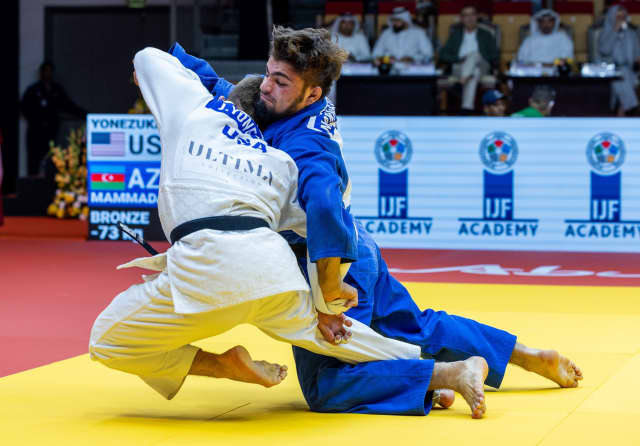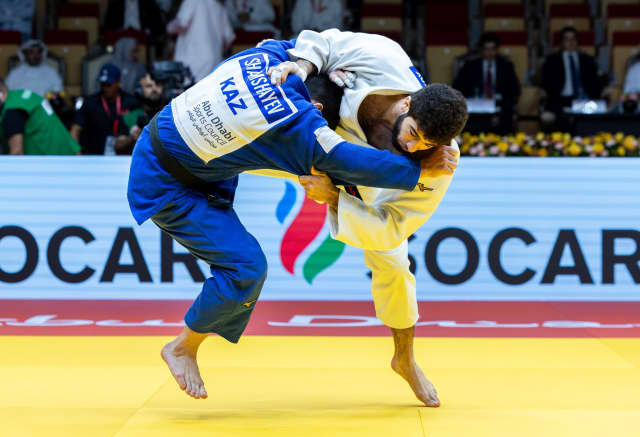However, in Abu Dhabi he exited after a second round defeat at the hands of Cano Garcia (ESP) who then also lost but to junior double world medallist Yonezuka (USA) who is going from strength to strength. His forte has always been his ne-waza but in recent months his throwing ability has exploded and now he can be relied upon in tachi-waza too. Yonezuka lost his quarter-final to up-and-coming Kosovan Akil Gjakova but in the repechage he threw for ippon with a sweet ashi-waza that his German opponent had no chance to avoid. In Abu Dhabi Yonezuka will compete in his first WJT final block, a natural progression for this hard working youngster. Paris 2024 seems totally within his reach.
Blink and you’ll miss it 👀
— Judo (@Judo) October 25, 2023
Follow all the action on https://t.co/5YYXyE0nko 📺#JudoAbuDhabi #Judo #AbuDhabi #UAE #Sport #Olympics #OlympicQualifiers #RoadToParis2024 #WJT pic.twitter.com/oAXUzBL4X1
It was Daniyar Shamshayev (KAZ) who came through pool B, the 5th seed. By the time he reached the quarter-final, the top seed of the pool had already been eliminated, leaving him with a clear path to the semi-final where he found Gjakova, on excellent form. He was European champion two years ago but since then has amassed 7th place finishes consistently. In Abu Dhabi his form seemed restored; strong, robust, committed judo throughout the day.
On the bottom half of the draw Makhmadbekov lived up to expectation all the way to the quarter-final. There he was knocked out by Mammadaliyev (AZE) after a thrilling golden score contest that was all-action from beginning to end. The Azeri struggled to recover though and lost the semi-final to Ahadov (UZB).
The first bronze medal contest was fought between Yonezuka (USA) and Mammadaliyev and actually the American put in a great effort, but had to accept two penalties, taking them into golden score, just to add some pressure. Neither competitor had won a grand slam medal before and so there was everything to play for. Yonezuka came close on the ground but his strategy is now widely known and Mammadaliyev didn’t allow it. He then threw for a waza-ari and raised his arms in satisfaction.
The second bronze medal was fought over Makhmadbekov (AIN) and Shamshayev (KAZ) and the former attempted a huge uchi-mata before even ten seconds had passed. It didn’t score but it set the tone! The energy stayed high but unexpectedly the win came in ne-waza. He took the opportunity to capitalise on split-second positional mistake and held Shamshayev for ippon.
An exciting final awaited spectators in the Jiu-Jitsu Arena, Zayed Sport City, between Gjakova (KOS) and Ahadov (UZB). Perhaps not quite at the pace we we waiting for, each looking to pressure on the grip. At two and a half minutes into the contest Gjakova came close to scoring, the first real attempt of the fight, but in the same moment the coach had to be asked to leave. This is always a last respite b it the rules on coaching are clear and it is important that everyone accepts the rules, to be fair to all.
In the next exchange Ahadov scored waza-ari, perhaps against the run of play and then controlled the gripping enough to nullify the Kosovan’s efforts. The gold was going to Uzbekistan and a grand slam silver to Kosovo.
Final (-73 kg)
Bronze Medal Fights (-73 kg)







